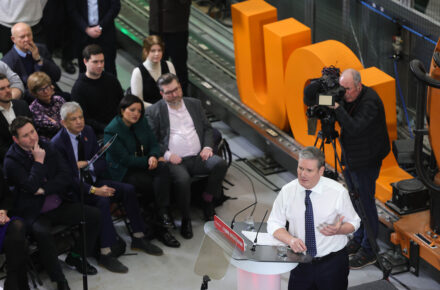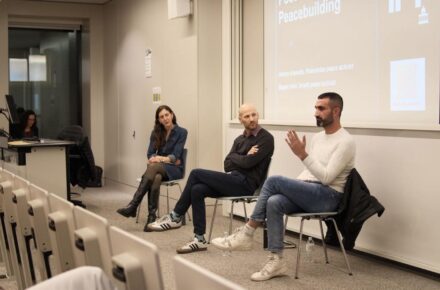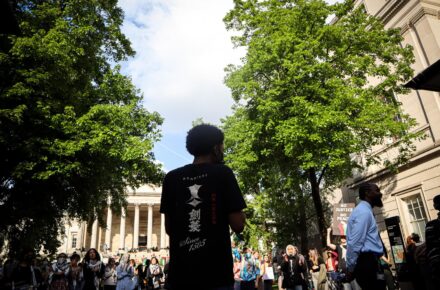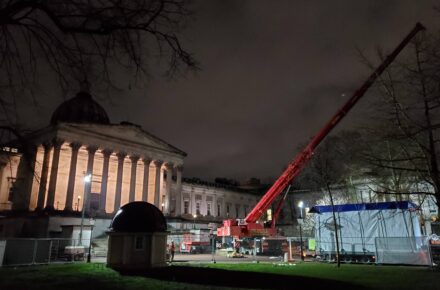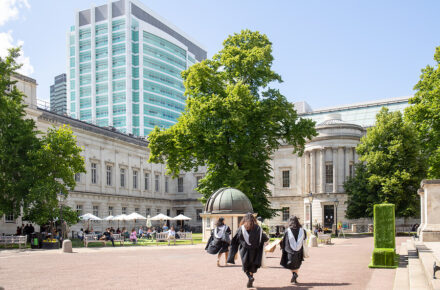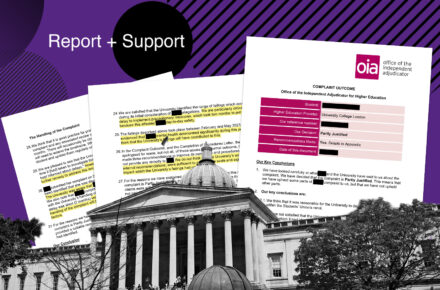
A covert group of senior academics are plotting a staff revolt over worries that UCL East is endangering the university’s future. Some members of the group, who style themselves as Save UCL Again, or SU(A!), are on the UCL Council, UCL’s central governing body. Sources have told The Cheese Grater that SU(A!) plan to raise their concerns directly at the next council meeting on February 14th.
Worries centre on the viability of UCL East, both financially and academically. Initial projections on the financial tenability of the project were largely optimistic and did not take into account the repercussions of the Brexit vote, with the potential reduction in EU students. There is also confusion over the status of the government loan promised by Boris Johnson, now that the former mayor has left office. Indeed, this is prompting further worries over UCL’s ability to pay back the massive £280 million loan they received from the European Investment Bank, which puts further financial pressure on the already cash-tight college.
Academics are also anxious that UCL East will prompt a move away from the science based research UCL has traditionally been renowned for, in favour of a teaching based approach. In an attempt to offer completely new degrees that would not otherwise be based in Bloomsbury, UCL revealed in a press release that they will provide “new degrees and research programmes that are developed from multi-disciplinary collaborations across the core themes of heritage, design, materials, performance, memory and media.”
However, there has been no market research conducted to gauge the interest in these new degrees. Indeed, the motivations for pursuing UCL East, apart from creating a legacy for Michael Arthur, or providing an alternative income stream, are unclear.
Despite these worries, private companies are already rushing to cash in. UPP, a private supplier of halls, who already own £245 a week Garden Halls, have invested £109 million in a new student halls in the area. When contacted, a UPP spokesperson claimed they were not able to comment on whether there had been discussions with UCL on the matter.
Financial Squeeze
The SU(A!) rebels are not only concerned about UCL East. The financial pressures facing the university has led to declining morale amongst staff. Part of the reasoning for increasing student numbers is to boost yearly revenue, however, this puts pressure on space and staff, necessitating a further increase in student numbers. Management have also imposed the target of a 5.5% surplus for all departments.
This has resulted in the increase in voluntary redundancies, sanctioned by senior management, and in excess of 250 forced redundancies amongst support staff. Indeed, in a memo seen by the Financial Times, the well liked former Dean of Medicine, Professor MacAllister, who was denied a third term, lambasted management, saying “I was never prepared to ruin people’s working lives by becoming a five-and a-half-percenter.”
Management power grab
Despite being elected to the UCL Council, academic representatives feel that they are being marginalised from decision making, including a lack of consultation over key strategic moves.
Dame DeAnne Julius has increased the use of Chair’s action to push through deals secretly and with little to no discussion. The Chair’s action, according to the UCL statutes, gives the chair the power to carry out any action “in any matters being in their opinion either urgent (but not of sufficient importance to justify a Special Meeting of the appropriate body) or non-contentious.”
Yet, this definition seems to have been interpreted very liberally. The details of the £280 million loan was not put to the Council to discuss, but rather to simply ‘note’. As such, the loan was signed off without even the Provost knowing the final details. A further £60 million purchase of Clare Hall was approved via an email poll, with unelected lay members outvoting senior elected academic representatives, despite various major concerns being raised. Dame Julius, through another email poll, gained approval to sign off the Audited Annual Financial Statements for the year ending July 2016, which includes the £280m mega-loan, even though the Committee of University Chair’s Code of Governance clearly states that this must not be delegated.
In a further power grab, the Chair and Registrar of the council have proposed a new definition to “noncontentious”, which would allow for a simply majority of council members polled by email to agree to an issue being non-contentious, thus allowing Dame Julius to extend her use of the Chair’s action. As lay members outnumber elected academic representatives, this has the effect of further marginalising the academic staff from decision making processes.
History repeats itself
Back in 2002, the original Save UCL campaign was launched, spearheaded by some of the same figures who are involved with SU(A!). The original campaign arose in opposition to the proposed merger between UCL and Imperial. The provost who initiated the merger deal, Sir Chris Llewellyn Smith, was forced out by the disgruntled academics. The same fate befell his interim replacement, Sir Derek Roberts, after he tried to restart the deal. Subsequently dubbed the Year of the Three Provosts, it remains a testament to the power united academics can wield. Michael Arthur will certainly be hoping that Save UCL doesn’t wreak as much havoc this time around.
Ollie Phelan
Artwork: Anna Saunders

